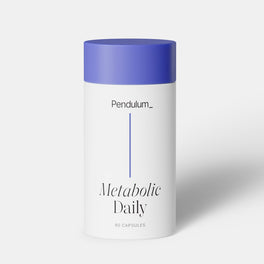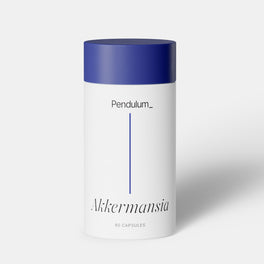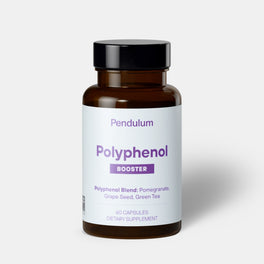Looks like your
cart is empty

Metabolic Daily
Improve metabolism

Akkermansia
Improves gut health

Polyphenol Booster
Increase antioxidants to protect cells
Stay in touch about special discounts, nutrition tips and additional education.
Looks like your
cart is empty

Improve metabolism

Improves gut health

Increase antioxidants to protect cells
Do you love papaya and hate seafood? Used to not like tomatoes but now you like them? Where do these taste preferences come from anyway? Are they totally subjective? Shaped by cultural influences? Genetics? One unforgettable experience with a bad fish taco?
Interestingly enough, emerging research suggests that an often-overlooked player in the nebulous world of taste is the oral microbiome—the diverse ecosystem composed of bacteria, viruses, fungi, and other microorganisms that inhabit the mouth. Much like the gut microbiome, these tiny inhabitants play a crucial role in maintaining oral health, aiding digestion, and even influencing overall well-being throughout the entire body.
Of course, taste is a tricky thing, involving taste buds and other sensory receptors in our mouths and noses. The oral microbiome, it turns out, could be pulling some strings in this taste perception game and could be part of the answer to the age old question of why some people recoil at the thought of cilantro while others savor its flavor.
Taste buds, those tiny clusters of cells on our tongues, are responsible for detecting different flavors—sweet, salty, sour, bitter, and umami. The interaction between the oral microbiome and taste buds is complex. Some bacteria in the oral microbiome produce compounds that can influence taste receptors, potentially making certain flavors more or less intense.
For example, the presence of specific bacteria may enhance the perception of sweetness while dampening the bitterness of certain foods. Conversely, an imbalance in the oral microbiome may contribute to an increased sensitivity to bitter tastes, making certain vegetables, such as broccoli or Brussels sprouts, less palatable for some. In other words, it might not be your fault you don’t want to eat your veggies! A study with 40 adults found that those with more Lactobacillus bacteria in their oral microbiome tended to find sweet tastes more intense, while those with more Prevotella bacteria thought bitter tastes were more intense. So, our personal taste buds might have a bacterial flavor preference.
Of course, genetics also plays a crucial role in taste preferences, influencing the types and abundance of microbes in our mouths. Our genes not only shape the composition of the oral microbiome but also influence its functional capacity, including its impact on taste perception.
One study identified specific genes associated with the preference for sweet or bitter tastes, indicating that our genetic makeup may contribute to the types of microbes that flourish in our mouths. Consequently, people with different genetic profiles may harbor distinct oral microbiomes, leading to variations in taste preferences.
The implications of this newfound understanding of the oral microbiome are vast, especially in the context of public health and nutrition. If certain people are predisposed to taste certain flavors more intensely or find them less appealing due to their oral microbiome composition, it could influence their dietary choices.
For example, a person with a heightened sensitivity to bitterness may be more averse to consuming bitter vegetables, potentially missing out on essential nutrients found in these foods. This insight into the interplay between our oral microbiome and taste preferences may have implications for personalized nutrition recommendations, helping people make healthier food choices based on their unique microbial makeup.
While taste preferences have long been considered a matter of personal choice, the role of the oral microbiome adds an interesting layer of complexity to the equation. In a nutshell, figuring out how the oral microbiome messes with our taste perception is like solving a tasty puzzle. We're not entirely sure how it all works yet, but it seems these little microbes might have a hand in the game. This could mean that taking a personalized approach to oral health and nutrition is key, considering how different people's microbiomes might affect their taste preferences. More research is needed, but it's an exciting journey into the world of how our mouths and our tastes are all connected.